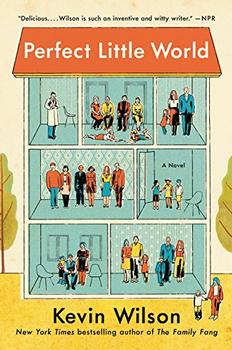Summary | Excerpt | Reviews | Beyond the Book | Read-Alikes | Genres & Themes | Author Bio

This article relates to Perfect Little World
In Perfect Little World, Dr. Preston Grind and his team of researchers conduct the "Marshmallow Experiment" on the children living at the Infinite Family Project. A marshmallow is placed before a child and he/she has a choice: eat it right away, or wait fifteen minutes and receive two marshmallows instead of one. The experiment was conceived by scientists at Stanford University, led by psychologist Walter Mischel, and conducted throughout the 1960s and 70s on roughly 650 children. It's known as the marshmallow experiment but that wasn't always the treat, cookies and pretzels were also used depending on what the subject preferred.
In the 1980s, Mischel checked in on his study subjects and made a startling discovery: those who were able to delay gratification by waiting for the second marshmallow reported higher SAT scores, were less likely to be overweight or addicted to drugs or alcohol, and were more "socially adept." These findings led Mischel to infer that those with better mechanisms for regulating self-control were more likely to be successful later in life, and the "marshmallow experiment" captured the popular imagination.
The experiment has its detractors. Some argue that the sample size is too small to effectively prove Mischel's correlation—only 93 of the original 600+ participants supplied their information for the followup study. For others, there is a "nature vs. nurture" issue, for children raised in an unreliable or impoverished environment, "the only guaranteed treats are the ones you have already swallowed," according to researchers from a study conducted in response to the original.
Mischel agrees with the latter issue; in an interview with PBS he notes that an individual's personality and ability to withstand temptation "depends enormously on environment." But the larger point for Mischel is not whether the children choose to wait, or even why, but how. Many of the children in the experiments employed techniques—sometimes provided to them by researchers—for distracting themselves from the temptation—what they call the "hot stimulus." By singing a song, envisioning the marshmallow as a fluffy cloud, or even just closing their eyes, delaying the gratification, or ignoring the hot stimulus became much easier.
While there does seem to be a correlation between self-control and success, the ability to withstand temptation is not genetically predetermined. Kids can be taught techniques similar to those employed in the experiment to improve their chances for success, in school and beyond, and even adults could find them potentially useful. In 2015, Mischel published a science/self-help book that expands on this premise called The Marshmallow Test: Why Self-Control is the Engine of Success. Former colleague and MacArthur genius grant recipient Angela Duckworth has used this research to emphasize the importance of teaching students about willpower in her bestselling book Grit: The Power of Passion and Perseverance.
To see the marshmallow experiment in action, click on the video below:
Filed under Medicine, Science and Tech
![]() This "beyond the book article" relates to Perfect Little World. It originally ran in February 2017 and has been updated for the
October 2017 paperback edition.
Go to magazine.
This "beyond the book article" relates to Perfect Little World. It originally ran in February 2017 and has been updated for the
October 2017 paperback edition.
Go to magazine.
Your guide toexceptional books
BookBrowse seeks out and recommends the best in contemporary fiction and nonfiction—books that not only engage and entertain but also deepen our understanding of ourselves and the world around us.